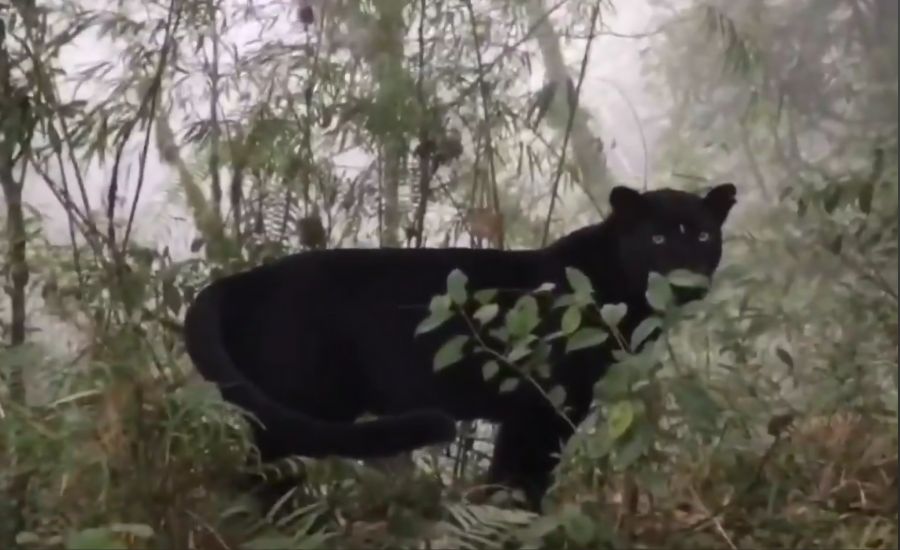Indian Forest Service (IFS) officer Parveen Kaswan recently captivated wildlife enthusiasts by sharing a remarkable video of a rare black panther, often referred to as the “Bagheera of Kurseong.” The footage, posted on X (formerly Twitter), featured the majestic creature strolling through the forest, leaving onlookers in awe as they captured the moment on their devices.
Mr. Kaswan’s post, which showcased the elusive black panther, included the caption, “This black panther is from North Bengal. Bagheera of Kurseong. What a beauty.” The video quickly gained attention, enchanting wildlife lovers with the animal’s grace and mystique.
In a follow-up post, Mr. Kaswan explained the science behind the black panther’s striking appearance. He revealed that the animal’s dark coat results from melanism, a genetic condition characterised by excessive pigmentation. Despite their black coats, the leopard’s signature rosette patterns can often be seen under specific lighting conditions.
“In India, the black panther is a melanistic form of the leopard (Panthera pardus),” he noted, offering insight into how this unique variant retains the defining traits of its species while appearing entirely black.
He also discussed the typical habitats of black panthers, which are primarily located in dense tropical forests across regions like Karnataka’s Kabini Forests, Kerala, Madhya Pradesh, Goa, and parts of Northeast India.
This black Panther from North Bengal. Bagheera of Kurseong. What a beauty. pic.twitter.com/BHzFLeUf4T
— Parveen Kaswan, IFS (@ParveenKaswan) January 24, 2025
“These animals are elusive and solitary, making sightings both rare and extraordinary,” he remarked. “As apex predators, black panthers play an essential role in maintaining ecological balance. However, they face significant challenges due to habitat destruction and poaching, highlighting the importance of conservation efforts to protect their populations.”
The black panther’s allure continues to capture public interest. Last year, a touching image of a black panther cub alongside its leopard mother, taken in Madhya Pradesh’s Pench Tiger Reserve, further fuelled admiration for these enigmatic creatures.
































